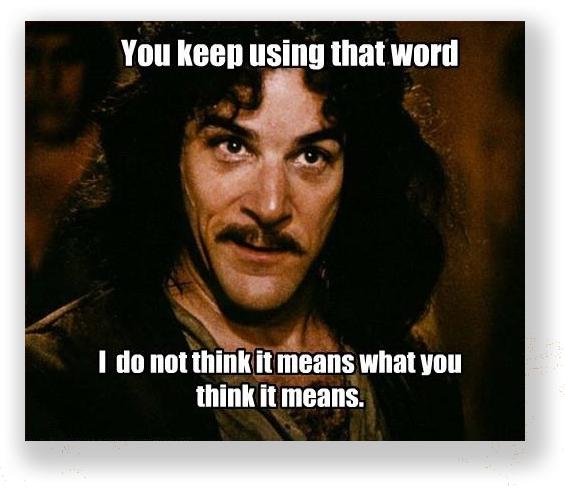We post news and comment on federal criminal justice issues, focused primarily on trial and post-conviction matters, legislative initiatives, and sentencing issues.
LEAVE ADULT PORN TO THE JUDGE
Under federal law, every criminal sentence of imprisonment also includes a post-release period of “supervised release,” which is really just a fancy term for probation. The courts like to describe supervised release in soaring terms, that it is “the decompression stage between prison and full release” and “serves complementary goals of protecting the public and re-habilitating an offender…”
 The 30-yard view always looks better. Down in the trenches, the man or woman on supervised release (usually called the “offender”) is subject during its 3-year-to-infinite term to a series of conditions which share the unfortunate trait of being as amorphous as Jello, all interpreted by a probation officer whose relationship with the court would require the judge’s recusal in any other situation.
The 30-yard view always looks better. Down in the trenches, the man or woman on supervised release (usually called the “offender”) is subject during its 3-year-to-infinite term to a series of conditions which share the unfortunate trait of being as amorphous as Jello, all interpreted by a probation officer whose relationship with the court would require the judge’s recusal in any other situation.
Squishy conditions? For example, the ex-offender “shall not associate with any person convicted of a felony unless granted permission to do so by the probation officer.” One out of 15 working-age adults is an ex-felon, and “associate” pretty much means whatever the probation officer says it means. So that guy you talked to at the bar? He’s a felon, whether you know it or not, and you probably just associated with him. This is hardly hyperbolic: we have had more than one probation officer tell us that “association” and “contact” are the same thing.
Another standard condition requires the defendant to “notify third parties of risks that may be occasioned by the defendant’s criminal record or personal history or characteristics, and shall permit the probation officer to make such notifications and to confirm the defendant’s compliance with such notification requirement.” And who interprets when such notification is needed, and to what extent? You guessed it.
And have you ever wondered why former inmates have trouble getting jobs? Or into education programs? Imagine the wet blanket the P.O. can throw over any job prospect simply by fiat that the inmate bare his or her soul to the company’s HR manager.
If a defendant is deemed by a probation officer to have violated a condition of supervised release, he or she will in all likelihood end up before the district court, where hearsay can be used to return the offender to prison on no more than a preponderance of the evidence (which may reasonably be translated as “the P.O.’s ‘say-so’). That’s unsurprising: after all the defendant has already been convicted beyond a reasonable doubt of the underlying offense, so a supervised-release violation may be considered to be little more than a sentencing.
The degree of control and discretion that supervised release confers on a probation officer is breathtaking to someone who has never been subject to its strictures. The defendant’s residence is subject to search without a warrant, the defendant’s travel outside of the federal district is subject to the P.O.’s approval (and many districts aren’t that large), and the defendant is required to report to the P.O. as often as the P.O. may require. A Chief Probation Officer in one federal district told us several years ago that his office “violated” one-third of all of the people supervised by his office.
 For those reasons, we’re always gratified on those rare “emperor-has-no-clothes” moments when a court of appeals acknowledges the obvious, that a condition of supervised release impermissibly delegates the judge’s duties to a functionary.
For those reasons, we’re always gratified on those rare “emperor-has-no-clothes” moments when a court of appeals acknowledges the obvious, that a condition of supervised release impermissibly delegates the judge’s duties to a functionary.
The frontier of supervised release litigation these days is for individuals convicted of sex offenses (most often, downloading child porn). Due in large part to the junk-scientific belief that sex offender recidivism is 80% (where it actually is somewhere like 3%), courts have heaped on supervised release restrictions. And given the tragic news from Los Angeles today that 91-year old exhausted rooster and porn pioneer Hugh Hefner died in his silk smoking jacket last night, it is only fitting that we look at a case from Hugh’s hometown of Chicago that deals with access to perfectly lawful (if a bit tasteless) adult porn.
 In today’s case, a district court imposed on Rick Wagner a special condition of supervised release that permitted the “sex offender treatment provider” to restrict his access to adult pornography. Rick argued to the 7th Circuit that the condition was an improper ban on him, as there is no evidence establishing a connection between his viewing lawful adult pornography and engaging in unlawful sexual activity with minor females.
In today’s case, a district court imposed on Rick Wagner a special condition of supervised release that permitted the “sex offender treatment provider” to restrict his access to adult pornography. Rick argued to the 7th Circuit that the condition was an improper ban on him, as there is no evidence establishing a connection between his viewing lawful adult pornography and engaging in unlawful sexual activity with minor females.
Earlier this week, the 7th agreed the condition was improper but disagreed that it was an outright ban. “Instead,” the Court said, “the condition delegates the determination of whether a ban will be imposed to a sex offender treatment provider (“treatment provider”). But, Article III judges lack constitutional authority to delegate the duty of imposing a defendant’s punishment to a non-Article III judge, such as a probation officer or treatment provider.” The Court cited an earlier holding that “terms should be established by judges ex ante, not by probation officers acting under broad delegations…”
 The Circuit said that when determining whether a supervised release condition violates the non-delegation rule, “we distinguish between permissible conditions that merely task the probation officer with performing ministerial acts or support services related to the punishment imposed and impermissible delegations that allow the officer to decide the nature or extent of the defendant’s punishment.” A condition requiring a defendant to attend treatment as approved by the probation officer is not a problem: the court has ordered the treatment, and merely has the P.O. handle “the details and supervision of the program.” But it is a different matter altogether when treatment is ordered “as deemed necessary by probation”: there, the condition is a delegation of the underlying judgment of whether the condition will be imposed at all.
The Circuit said that when determining whether a supervised release condition violates the non-delegation rule, “we distinguish between permissible conditions that merely task the probation officer with performing ministerial acts or support services related to the punishment imposed and impermissible delegations that allow the officer to decide the nature or extent of the defendant’s punishment.” A condition requiring a defendant to attend treatment as approved by the probation officer is not a problem: the court has ordered the treatment, and merely has the P.O. handle “the details and supervision of the program.” But it is a different matter altogether when treatment is ordered “as deemed necessary by probation”: there, the condition is a delegation of the underlying judgment of whether the condition will be imposed at all.
Here, the 7th Circuit said, the district court did not impose a ban on Rick’s access to adult pornography itself because – based on the utter lack of evidence supporting imposition of the condition – it could not. Instead, it did an end run around the matter by delegating the decision of whether “adult pornography should be restricted or denied” to a probation officer or treatment provider. The Court ruled, “This is an impermissible delegation of the district court’s Article III authority to determine the nature” of Rick’s punishment.”
United States v. Wagner, Case No. 15-3265 (7th Cir., Sept. 25, 2017)
– Thomas L. Root










